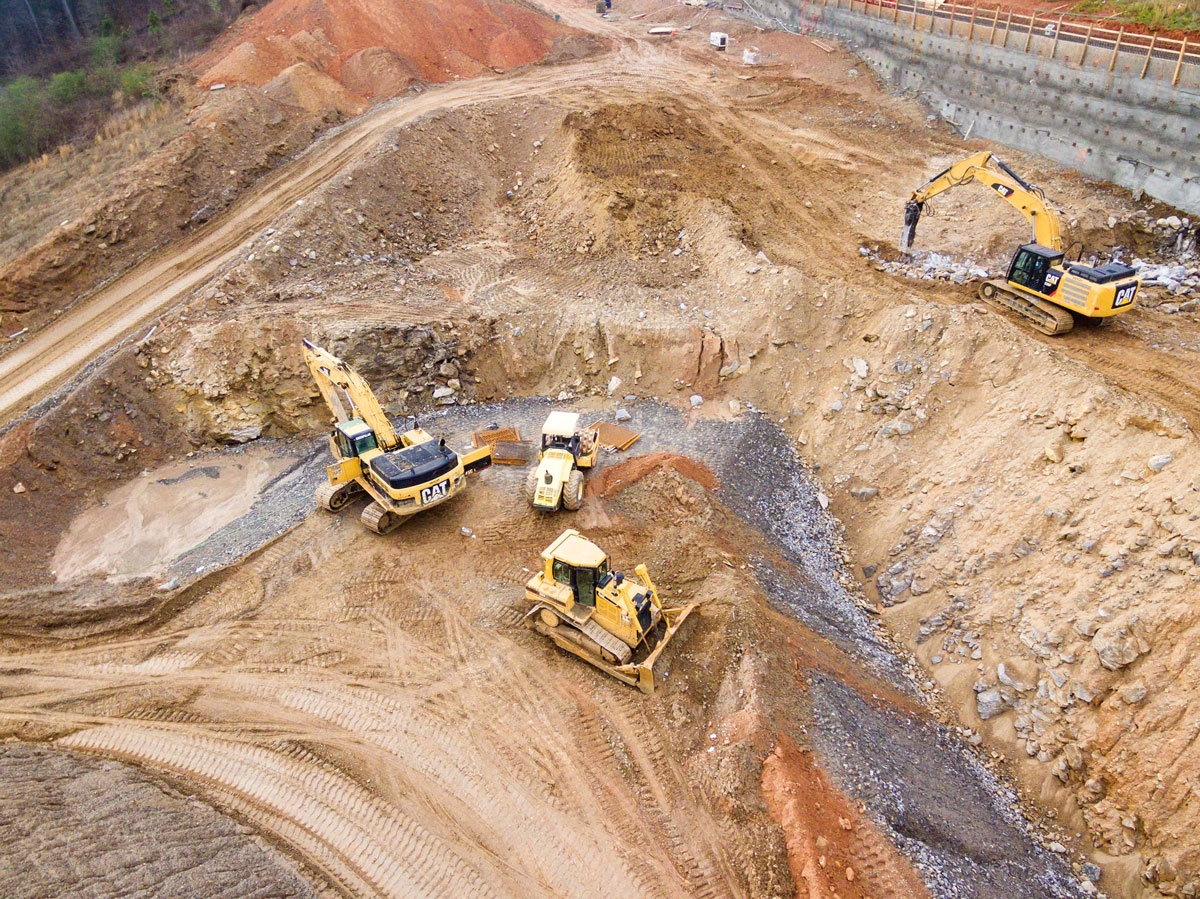Dependable Construction Equipment Rentals for Your Projects
Dependable Construction Equipment Rentals for Your Projects
Blog Article
Renting Out Vs. Buying Building Devices: Making the Right Choice for Your Task
When getting started on a construction job, one of the critical decisions that forecast managers and stakeholders encounter is whether to rent or buy building tools. The choice pivots on different aspects such as price factors to consider, task period, tools upkeep, flexibility, threat, and scalability administration.
Price Considerations
When evaluating the economic aspect of purchasing versus renting out building and construction equipment, the long-term expenditures and upfront prices should be carefully considered. Renting tools commonly requires reduced preliminary settlements compared to acquiring, making it an attractive alternative for temporary projects or specialists with budget restraints. Renting gets rid of the need for large capital investments and decreases the financial danger associated with tools possession, such as upkeep and depreciation prices. Nonetheless, over time, continuously leasing equipment can gather greater prices than acquiring, especially for prolonged tasks.
On the various other hand, acquiring building devices involves higher upfront costs but can cause lasting savings, particularly for regular users or long-term jobs. Owning devices supplies adaptability, benefit, and the potential for resale worth once the task is finished. Furthermore, having devices enables modification and familiarity with particular equipment, possibly boosting effectiveness and productivity on-site. Eventually, the choice between renting and purchasing construction tools pivots on the job's period, frequency of usage, budget plan factors to consider, and long-lasting financial objectives.
Task Duration

Conversely, for lasting tasks or recurring construction job, buying equipment could be the more economical option. Purchasing tools can result in cost financial savings in the future, especially if the devices will certainly be frequently used. Moreover, possessing equipment supplies a feeling of control over its accessibility and permits customization to fit details project requirements.

Equipment Upkeep
Given the critical duty job period plays in identifying the most economical method in between renting out and purchasing building equipment, the emphasis currently changes towards checking out the essential element of tools maintenance. On the other hand, having tools requires a positive technique to upkeep to protect against failures, guarantee security, and prolong the devices's life expectancy. Ultimately, a well-kept building equipment fleet, whether rented out or had, is important for the reliable and effective conclusion of building projects.
Versatility and Scalability
In the realm of building tools management, the facet of flexibility and scalability holds significant relevance for job effectiveness and resource application. Choosing to rent building and construction devices gives a high degree of adaptability as it permits the quick you could try here modification of equipment kinds and amounts based upon the developing demands of a task. Renting allows specialists to access a variety of specific equipment that might be required for details jobs without the long-lasting commitment of possession. This adaptability is especially useful for projects with differing requirements or unclear durations (boom lift rental).
Additionally, scalability, another important aspect, is inherently connected to adaptability. Renting construction devices uses the advantage of easily scaling procedures up or down as job needs vary. Professionals can promptly include or exchange equipment to match the job's transforming requirements without the constraints of possessing possessions that might come to be underutilized or outdated. This capacity to range resources efficiently can cause price financial savings and improved project timelines, making leasing a positive option for jobs needing flexibility and responsive source appropriation.
Danger Administration
Effective risk administration in building devices operations is vital to making sure task success and mitigating prospective monetary losses. Building jobs inherently involve various risks, such as equipment breakdowns, accidents, and project delays, which can substantially affect the job timeline and spending plan. By meticulously thinking about the risks connected with owning or renting out building and construction equipment, project supervisors can make enlightened decisions to minimize these possible risks.
Renting out construction devices can provide a degree of danger mitigation by moving the obligation of repair and maintenance to the rental business. This can lower the financial burden on the project proprietor in situation of unexpected tools failures (construction equipment rentals). Furthermore, leasing offers the versatility to access specific devices for particular task stages, reducing the threat of having underutilized machinery
On the various other hand, owning building and construction equipment offers a sense of control over its usage and maintenance. Nevertheless, this likewise means bearing the complete obligation for repairs, maintenance expenses, and devaluation, increasing the monetary risks linked with equipment ownership. Cautious danger analysis and factor to consider of factors such as project duration, devices use, and maintenance demands are critical in identifying the most ideal alternative for efficient danger administration in building and construction tasks.
Final Thought
To conclude, when determining between renting out and getting construction equipment, it is very important to consider expense, job period, devices upkeep, adaptability, scalability, and threat management. Each factor plays a crucial function in establishing one of the most suitable review option for the task handy. By very carefully assessing these aspects, job managers can make an educated decision that straightens with their budget plan, timeline, and overall job objectives.

Report this page